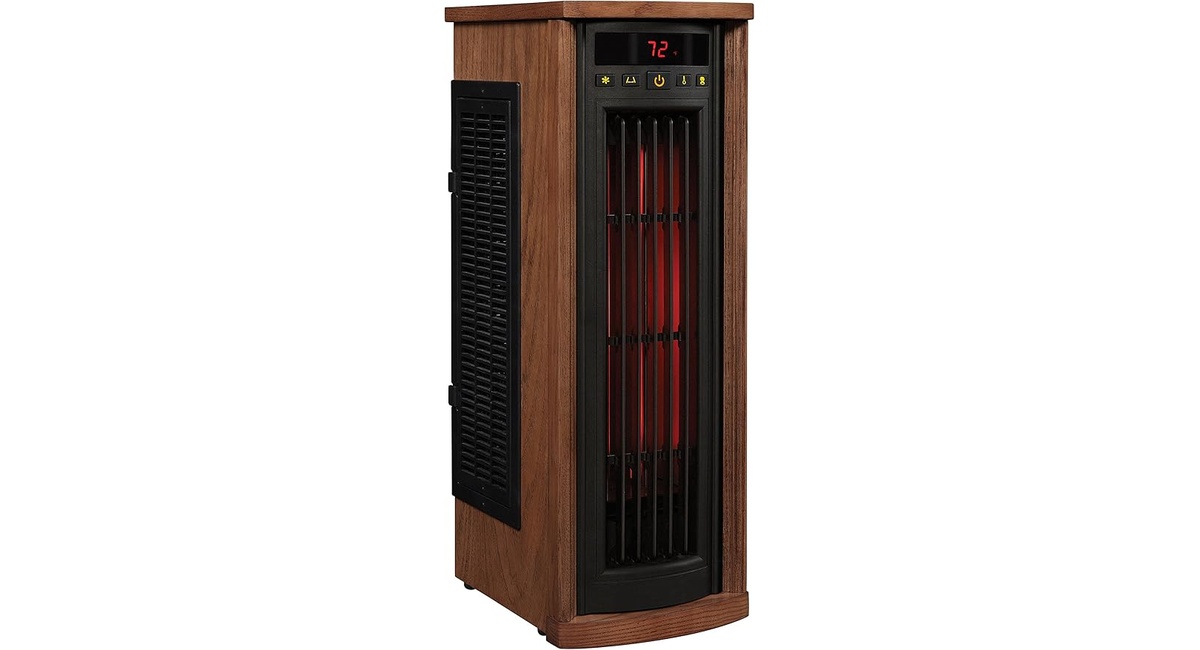
A tower room heater is a compact heating device designed to warm indoor spaces efficiently. These heaters are tall and slim, making them ideal for small rooms.
Tower room heaters offer an effective solution for keeping your living space cosy during colder months. Their vertical design allows them to fit easily in tight corners or small areas, maximizing floor space. Most models feature adjustable heat settings and oscillation functions, ensuring even warmth distribution throughout the room.
Many tower heaters include safety features like tip-over protection and overheat shutoff, providing peace of mind during use. With energy-efficient options, these heaters help reduce electricity bills while maintaining comfort. Choosing the right tower room heater can enhance your home’s atmosphere without sacrificing style or convenience.
What Is A Tower Room Heater
A tower room heater is a tall, slender device designed to provide warmth in various indoor spaces. It efficiently heats a room while taking up minimal floor space. These heaters are popular for their sleek design and effective heating capabilities. Families often use them during cold months to keep their homes cosy and comfortable.
Design Features
The design of a tower room heater sets it apart from other large indoor heaters. Its vertical structure allows for efficient air circulation and heating. Here are some key design features:
- Compact Size: Fits easily into small corners.
- Lightweight: Easy to move from room to room.
- Stylish Appearance: Available in various colors and finishes.
- Safety Features: Many include tip-over and overheat protection.
These features make it ideal for homes with limited space. Some models come with a digital display and remote control. This allows users to adjust settings without getting up. A comparison table of design features is below:
| Feature | Benefits |
|---|---|
| Compact Size | Easy to fit in any room. |
| Lightweight | Simple to relocate as needed. |
| Stylish Appearance | Enhances home decor. |
| Safety Features | Prevents accidents. |
The space tower heater maximizes heating efficiency while ensuring safety. It can easily warm up a large room quickly.
Common Types
There are several common types of tower room heaters. Each type offers unique benefits. Here are the main categories:
Fan-Forced Heaters: Use a fan to spread warm air quickly.
Radiant Heaters: Heat objects directly without warming the air.
Oil-Filled Heaters: Maintain warmth for a long time.
Infrared Heaters: Provide instant heat by warming people and objects.
Each type has its pros and cons. For example, fan-forced heaters heat quickly but may dry the air. Oil-filled heaters are silent and energy-efficient but take longer to heat a space. Here’s a summary table of these types:
| Type | Heating Method | Speed |
|---|---|---|
| Fan-Forced | Circulates air | Fast |
| Radiant | Direct heat | Moderate |
| Oil-Filled | Radiates heat | Slow |
| Infrared | Direct warmth | Instant |
Choosing the right large electric space heater depends on your heating needs. Consider the size of your room and how quickly you need heat. Large space heaters can keep your home warm and inviting during chilly seasons.
Benefits Of Tower Room Heaters
Energy Efficiency
Energy efficiency is a major benefit of a tower room heater. Unlike large indoor heaters, these heaters focus on heating specific areas rather than entire homes. This targeted heating can lead to significant energy savings. Here are some key points about their energy efficiency:
Lower Energy Bills: Tower heaters consume less energy compared to large space heaters.
Quick Heating: They heat up quickly, providing warmth when you need it.
Adjustable Settings: Many models allow you to customize heating levels, further saving energy.
Here is a table that shows the energy use of a typical tower room heater and a large electric space heater:
| Type of Heater | Wattage | Average Cost per Hour |
|---|---|---|
| Tower Room Heater | 1500W | $0.15 |
| Large Electric Space Heater | 3000W | $0.30 |
Choosing a space tower heater allows you to enjoy a cosy environment without breaking the bank.
Space-saving Design
The space-saving design of a tower room heater makes it a smart choice for any home. Unlike bulky large indoor heaters, tower heaters have a slim profile. This allows them to fit neatly into corners or small spaces. Here are some features of their design:
Compact Size: They take up very little floor space.
Stylish Appearance: Many models come in modern designs that enhance room decor.
Portability: Lightweight designs allow easy movement from room to room.
Here’s a quick comparison of the space requirements:
| Heater Type | Dimensions (inches) | Ideal Room Size (sq ft) |
|---|---|---|
| Tower Room Heater | 6 x 6 x 30 | Up to 300 |
| Large Space Heater | 24 x 24 x 30 | Up to 600 |
A tower room heater maximizes your living area without sacrificing warmth. This makes them perfect for small apartments and cosy rooms.
How To Choose The Right Heater
A Tower Room Heater is a smart choice for keeping your space warm. Choosing the right heater can make a big difference in comfort. Think about your room size and heating capacity. This guide helps you make the best choice for your needs.
Room Size Considerations
Room size plays a crucial role in selecting a heater. A heater that works well in a small room may need help in a larger space. Here are some tips to consider:
- Measure your room dimensions: Length x Width
- Calculate the square footage: Multiply the length by the width
- Choose a heater that fits your room size
Different heaters are designed for various room sizes. Here’s a simple table to guide you:
| Room Size (sq ft) | Recommended Heater Wattage |
|---|---|
| 100 – 200 | 750 – 1000 watts |
| 200 – 400 | 1000 – 1500 watts |
| 400 – 800 | 1500 – 3000 watts |
Large indoor heaters need to be ensured to cover the entire area. Large electric space heaters or large space heaters are great for bigger rooms. Always check the manufacturer’s specifications for the best results.
Heating Capacity
Heating capacity is another vital factor. It tells you how much space a heater can warm effectively. This is usually measured in BTUs (British Thermal Units) or watts. Higher numbers mean more heating power.
Consider these points:
- Match the heater’s capacity to your room size.
- A heater too small will struggle to heat your space.
- A heater too large may save energy.
For example, a space tower heater can be ideal for medium-sized rooms. They often have adjustable settings for different needs. Look for features like:
- Thermostat controls
- Multiple heat settings
- Energy efficiency ratings
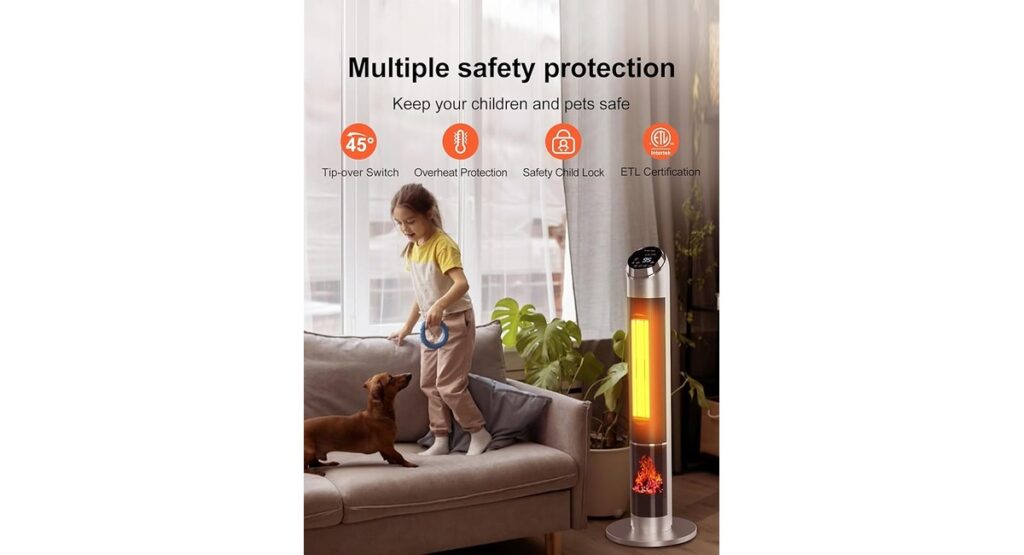
Choosing a heater with the right capacity ensures comfort. It also saves energy and money. Find a balance between size and capacity for the best experience.ing a heater with the right capacity ensures comfort. It also saves energy and money. Find a balance between size and capacity for the best experience.
Key Features To Look For
A tower room heater is an excellent choice for efficiently warming your space. These heaters come with various features that make them user-friendly and safe. Understanding the key features to look for can help you find the perfect model for your needs.
Focus on elements like thermostat control and safety features. These aspects play a crucial role in performance and reliability.
Thermostat Control
Thermostat control is a vital feature in a tower room heater. It helps you maintain a comfortable temperature. With precise temperature settings, you can avoid overheating or underheating your room.
Look for models with digital or adjustable thermostats. They offer better control over the heating process.
- Digital Thermostats: Provide accurate temperature readings.
- Adjustable Settings: Let you set your desired temperature easily.
- Energy Efficiency: Helps save on electricity bills.
Here’s a quick comparison of thermostat types:
| Type | Benefits |
|---|---|
| Manual | Simple to use, low cost |
| Digital | High accuracy, programmable settings |
| Smart | Remote control, learning capabilities |
Choosing a heater with a good thermostat can greatly improve comfort. This feature is especially important in large indoor heaters. It ensures even heating across the room, making it ideal for large electric space heaters.
Safety Features
Safety features are crucial for any heating device, especially large space heaters. Look for a tower room heater with multiple safety options. These features protect you and your home from potential hazards.
- Overheat Protection: Shuts off the heater if it gets too hot.
- Tip-Over Switch: Turns off the heater if it tips over.
- Cool Touch Exterior: Prevents burns when touched.
Here’s a list of safety features to consider:
| Feature | Description |
|---|---|
| Overheat Protection | Automatic shut-off to prevent overheating |
| Tip-Over Switch | Heater turns off if it falls |
| Child Lock | Prevents accidental changes to settings |
These safety features are essential for peace of mind. They are especially important in homes with children or pets. A reliable space tower heater should have these options for your safety.
Installation Tips
The Tower Room Heater is popular for keeping rooms warm during colder months. Proper installation is key to maximize efficiency and safety. Following correct installation tips ensures that your heater works effectively and lasts longer. This guide provides essential tips for placing your heater and ensuring electrical safety.
Placement Guidelines
Choosing the right spot for your space tower heater can make all the difference. Here are some placement guidelines to consider:
Keep the heater at least three feet away from flammable materials.
Position the heater in a central location for even heat distribution.
Avoid placing it near furniture or curtains that can block airflow.
Ensure the heater is on a flat surface to prevent tipping over.
Check the manufacturer’s instructions for specific recommendations. Here’s a quick reference table for optimal placement:
| Placement Option | Recommendation |
|---|---|
| Near Walls | Minimum of 3 feet distance |
| In Corners | Avoid, can restrict airflow |
| On Carpets | Use only if heater is rated for carpets |
| High Traffic Areas | Keep away to prevent accidents |
These guidelines help ensure your large electric space heater operates safely and efficiently.
Electrical Safety
Electrical safety is crucial when using a tower room heater. Here are important tips to keep in mind:
Always plug the heater directly into a wall outlet. Avoid using extension cords.
Check the power rating of your heater. It should match the outlet capacity.
Inspect the cord and plug regularly for any damage.
Keep the heater away from water sources to prevent electric shock.
Follow these safety guidelines to protect yourself and your home:
- Do not leave the heater unattended while it’s on.
- Turn off the heater when leaving the room.
- Make sure children and pets stay away from the heater.
For large space heaters, consider using a dedicated circuit to prevent overloading. Regular maintenance is essential. Always consult a professional electrician if you have doubts about electrical safety.
Operating A Tower Heater
The Tower Room Heater is a popular choice for many homes. It provides warmth and comfort during cold months. Operating a tower heater is simple and user-friendly. Understanding its features helps you maximize its benefits.
This blog post explores key functions like temperature settings and timer functions. These features make using a space tower heater easy and efficient.
Temperature Settings
Temperature settings are crucial for your comfort. Most large electric space heaters offer multiple heat levels. This allows you to choose the right temperature for your room. Here are some common temperature settings:
Low: Ideal for mild days.
Medium: Perfect for chilly evenings.
High: Best for extremely cold weather.
Some heaters have a digital display. This shows the current temperature and the selected setting. You can adjust it easily with a remote or buttons. Here’s a simple table summarizing the temperature range:
| Setting | Temperature Range (°F) |
|---|---|
| Low | 60-70 |
| Medium | 71-80 |
| High | 81-95 |
Adjusting the temperature helps save energy. You can keep your space comfortable without wasting power. Always monitor the room’s temperature for the best results.
Timer Functions
Timer functions enhance the convenience of your large space heaters. This feature allows you to set the heater to operate for a specific time. You can enjoy warmth without worrying about leaving it on all day.
Auto Shut-off: Turns off the heater after the set time.
Start Delay: Lets you schedule when the heater should start.
Here’s how to use the timer effectively:
- Decide how long you want the heater to run.
- Set the timer using the control panel.
- Confirm the settings.
Many tower room heaters come with a built-in timer. This feature adds safety and energy efficiency. You can enjoy peace of mind knowing the heater will turn off automatically.
This is especially important for large indoor heaters. Always refer to the user manual for specific timer functions.
Maintenance Practices
The tower room heater is popular for keeping spaces warm during colder months. Proper maintenance practices ensure these large indoor heaters operate efficiently and safely. Regular care can extend their lifespan and improve performance. Simple cleaning and seasonal checks can make a significant difference.
Cleaning Procedures
Cleaning your tower room heater is essential for optimal performance. Dust and debris can block airflow and reduce heating efficiency. Follow these steps for effective cleaning:
- Turn off and unplug the heater before cleaning.
- Turn off and unplug the heater before cleaning.
- Use a soft cloth to wipe down the exterior.
- For stubborn stains, use a mild soap solution.
- Vacuum the air intake and exhaust grilles to remove dust.
- Check for any debris in the heater’s base.
Consider doing a deep clean at least once a month. Here’s a simple table for your cleaning schedule:
| Frequency | Task |
|---|---|
| Weekly | Wipe the exterior with a soft cloth. |
| Monthly | Vacuum air intake and exhaust grilles. |
| Seasonally | Deep clean and check for damage. |
These steps can help maintain your large electric space heaters. Keeping them clean ensures they work efficiently and last longer.
Seasonal Checks
Performing seasonal checks is crucial for your space tower heater. These checks help identify any issues before winter sets in. Follow these guidelines:
- Inspect the power cord for any signs of wear.
- Check all connections to ensure they are secure.
- Look for any strange noises during operation.
- Make sure the heater is not placed near flammable materials.
Keep a checklist for your seasonal checks:
| Check | Description |
|---|---|
| Power Cord | Look for frays or damage. |
| Connections | Ensure all plugs and sockets are secure. |
| Noise | Listen for any unusual sounds. |
Regular checks can prevent issues with your large space heaters. A little effort goes a long way in keeping your heater safe and effective.
Common Issues And Solutions
The tower room heater is a popular choice for heating indoor spaces efficiently. Many people enjoy the warmth it provides during cold months. However, like any appliance, it can have common issues. Understanding these problems and their solutions can help keep your heater running smoothly.
Overheating Problems
Overheating is a frequent issue with large indoor heaters. This happens when the heater operates at high temperatures for too long. Overheating can lead to safety risks and damage to the unit. Here are some common causes:
- Blocked air vents
- Dirty filters
- Faulty thermostat
To prevent overheating, follow these solutions:
- Ensure air vents are clear of any obstructions.
- Regularly clean or replace the filters.
- Check the thermostat settings and replace them if they are faulty.
Here’s a simple table summarizing the causes and solutions:
| Cause | Solution |
|---|---|
| Blocked air vents | Clear any obstructions |
| Dirty filters | Clean or replace filters |
| Faulty thermostat | Check and replace if needed |
By addressing these issues, you can extend the life of your space tower heater and maintain a comfortable environment.
Noise Concerns
Noise can be a significant concern for users of large electric space heaters. Many people find the sound distracting, especially at night. Common sources of noise include:
- Fan operation
- Loose parts
- Electrical issues
Here are some ways to reduce noise:
- Place the heater on a flat surface to minimize vibration.
- Inspect for loose screws or parts and tighten them.
- Ensure electrical connections are secure to avoid buzzing sounds.
For a quick reference, here’s a table of noise sources and solutions:
| Noise Source | Solution |
|---|---|
| Fan operation | Choose a model with quieter fans |
| Loose parts | Tighten any loose components |
| Electrical issues | Secure all electrical connections |
Addressing noise concerns will make your experience with large space heaters much more enjoyable.
Comparing Costs
The cost of heating your space can vary greatly. A tower room heater offers efficiency and convenience. Understanding the costs associated with these heaters is essential.
This section explores the initial investment and ongoing operating expenses. This knowledge helps you choose the right heater for your needs.
Initial Investment
The initial investment for a tower room heater can differ significantly. Prices depend on brand, size, and features. Generally, large indoor heaters range from $50 to $300. Here’s a quick overview of costs:
| Type of Heater | Price Range |
|---|---|
| Basic Tower Room Heater | $50 – $100 |
| Mid-Range Tower Heater | $100 – $200 |
| High-End Tower Heater | $200 – $300 |
Consider these factors for your investment:
- Energy Efficiency: Look for heaters with good ratings.
- Brand Reputation: Choose trusted brands for reliability.
- Features: Remote control and timers add convenience.
Buying a large electric space heater may be costly. However, investing in a quality model saves money in the long term.
Operating Costs
Operating costs are crucial for understanding total expenses. Tower room heaters consume electricity. The cost of running these heaters can add up over time. Here’s how to estimate your monthly operating costs:
- Check the heater’s wattage.
- Calculate daily usage in hours.
- Multiply wattage by usage hours.
- Divide by 1,000 to convert to kilowatts.
- Multiply by your electricity rate per kilowatt-hour.
For example, a 1,500-watt space tower heater used for 8 hours daily:
| Parameter | Value |
|---|---|
| Wattage | 1,500 watts |
| Usage | 8 hours |
| Electricity Rate | $0.12 per kWh |
| Monthly Cost | $43.20 |
To lower operating costs:
- Use timers: Schedule heating times.
- Set lower temperatures: Find a comfortable balance.
- Maintain the heater: Regular cleaning improves efficiency.
Large space heaters are effective but can be costly to operate. Understanding these costs helps in making informed choices.
Environmental Impact
The environmental impact of a tower room heater is an important topic. These devices provide warmth during cold seasons. However, their energy consumption and material use affect our planet.
Understanding their energy sources and sustainability considerations helps us make informed choices. Let’s explore how these heaters impact our environment.
Energy Sources
Tower room heaters primarily use electricity. The source of this electricity can vary greatly. Here are some common energy sources:
- Fossil Fuels: Many power plants use coal, oil, or natural gas.
- Renewable Energy: Solar, wind, and hydroelectric power are cleaner options.
- Nuclear Power: This source produces energy without direct carbon emissions.
Using a space tower heater can lead to different environmental impacts based on the energy source. Below is a table showing the emissions from each type of energy:
| Energy Source | CO2 Emissions (per kWh) | Impact Level |
|---|---|---|
| Fossil Fuels | 0.9 kg | High |
| Renewable Energy | 0 kg | Low |
| Nuclear Power | 0 kg | Medium |
Large electric space heaters can significantly contribute to carbon emissions if powered by fossil fuels. Choosing large space heaters that use renewable energy can reduce this impact. Opting for energy-efficient models also makes a difference.
Sustainability Considerations
Sustainability is crucial when choosing a tower room heater. Here are a few considerations:
- Energy Efficiency: Look for heaters with high energy ratings.
- Material Use: Check if the materials are recyclable.
- Longevity: A durable heater reduces waste.
Manufacturers should design large indoor heaters to last. This reduces the frequency of replacements. Here are some sustainable features to consider:
- Smart thermostats that adjust the temperature.
- Fan-assisted heating for better air distribution.
- Timers to prevent unnecessary usage.
Using a space tower heater effectively can minimize environmental damage. Investing in energy-efficient models ensures you contribute to a healthier planet.
Table of Contents
Frequently Asked Questions
What Is A Tower Room Heater?
A tower room heater is a vertical space heater designed to warm small to medium-sized rooms efficiently.
How Does A Tower Room Heater Work?
It uses convection and radiant heating to circulate warm air, providing quick and efficient room heating.
What Are The Benefits Of Using A Tower Heater?
Tower heaters are portable, energy-efficient, and often equipped with safety features like tip-over protection and overheat shutoff.
Can A Tower Heater Be Used Overnight?
Yes, many tower heaters are designed for safe overnight use, featuring timers and thermostats for comfort.
How Do I Maintain My Tower Room Heater?
Regularly clean filters, check for blockages and ensure proper placement away from flammable materials for optimal performance.
Conclusion
A tower room heater is an excellent choice for efficient heating. Its compact design fits seamlessly into any space. You can find the perfect model for your needs with various features available. Embrace warmth and comfort this season by investing in a reliable tower heater that enhances your home environment.

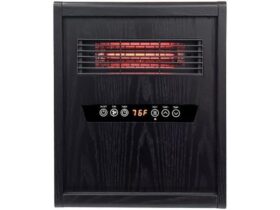
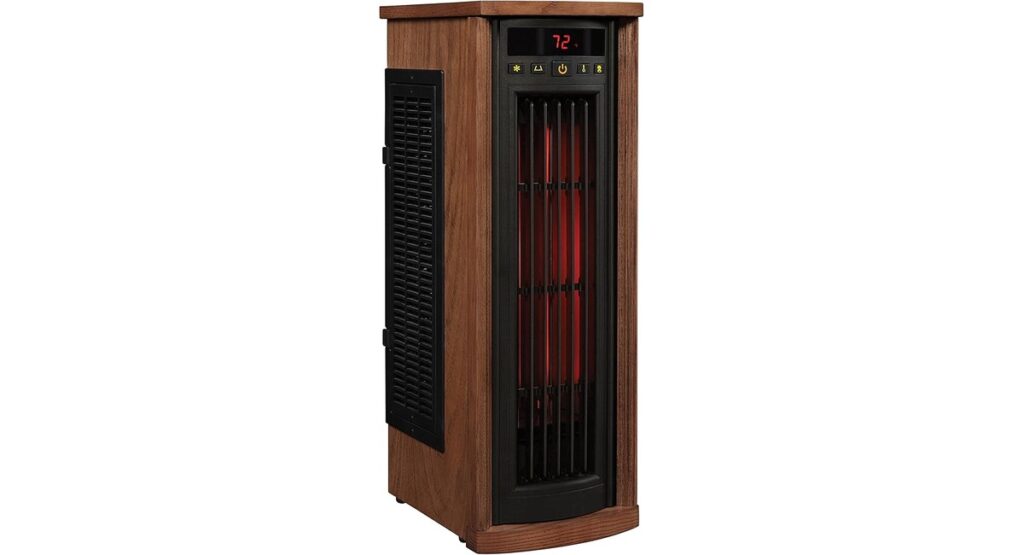
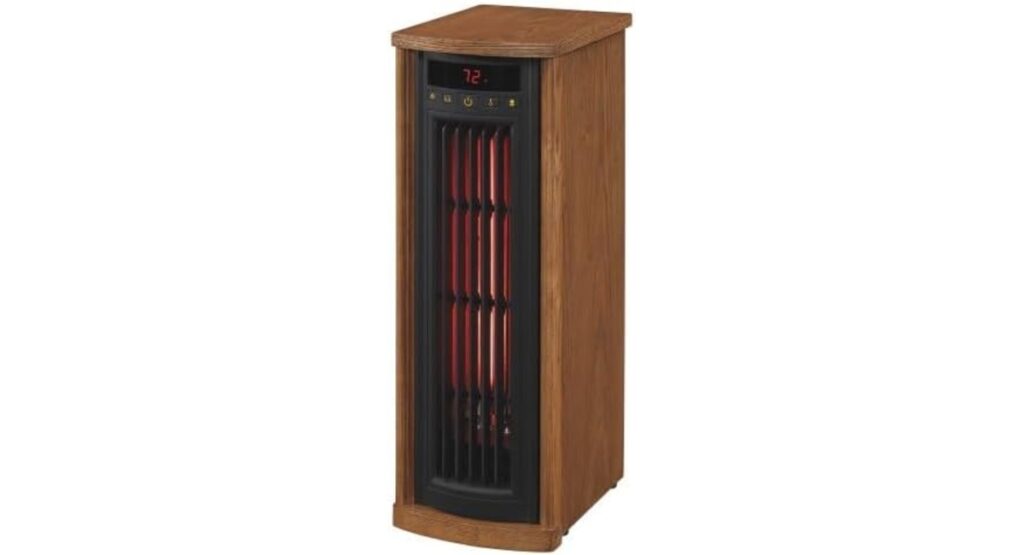
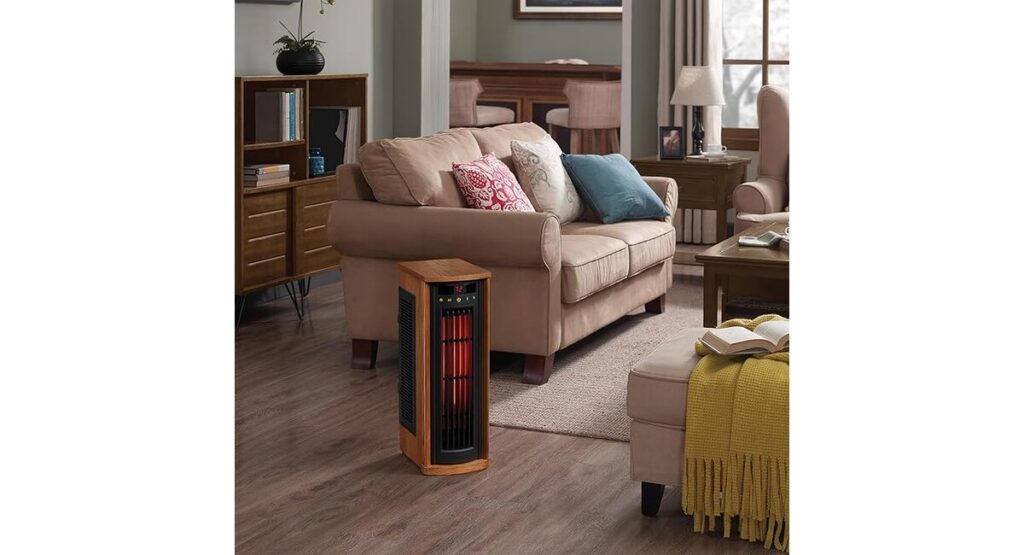
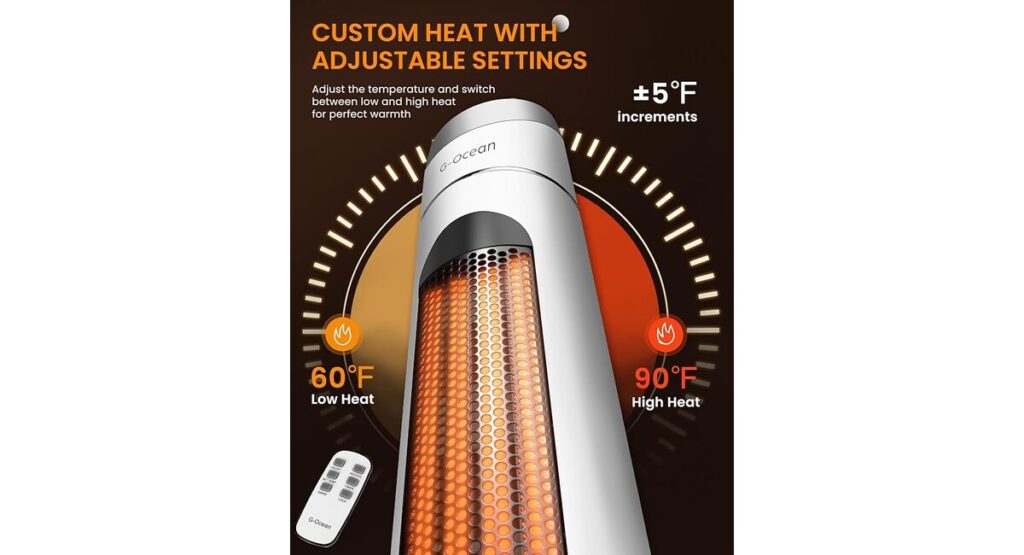
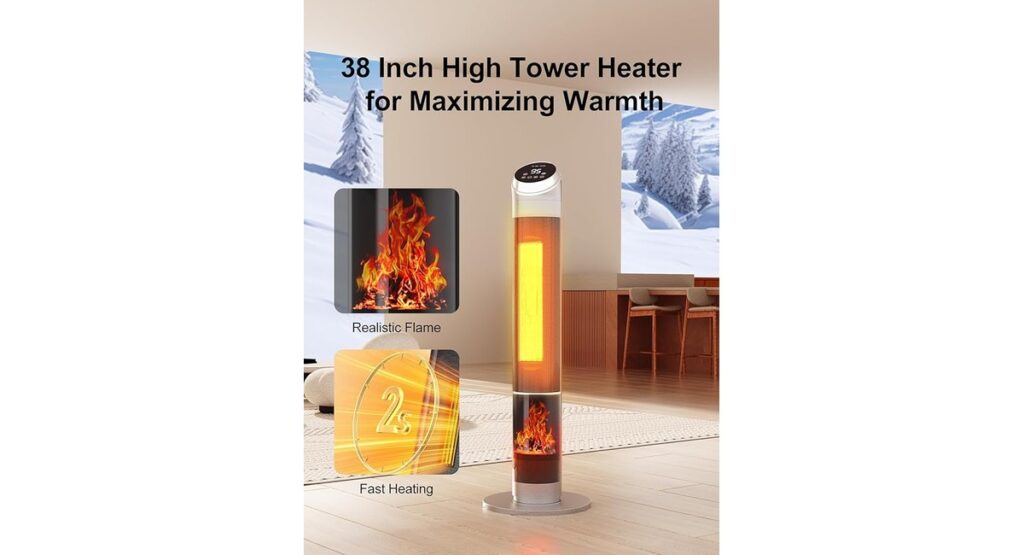
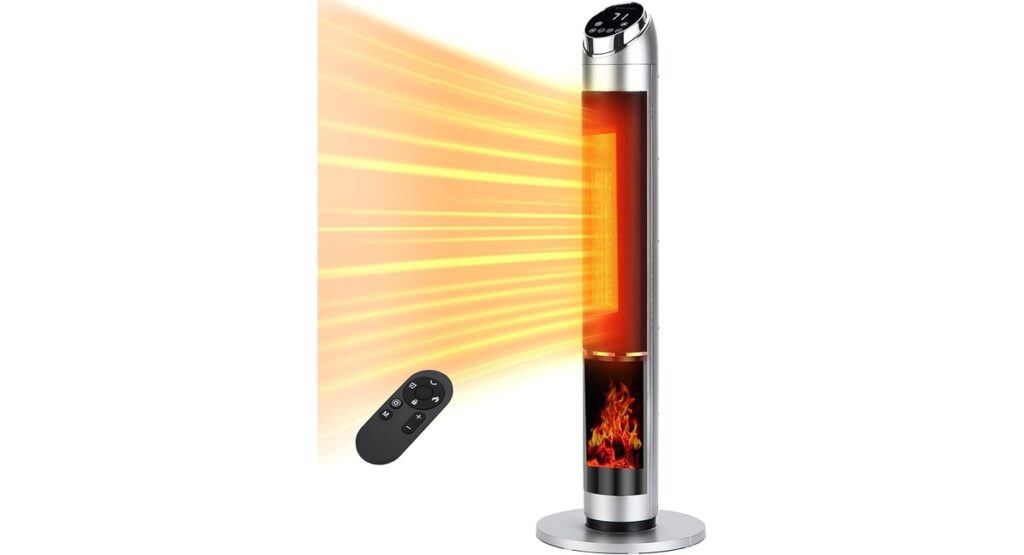

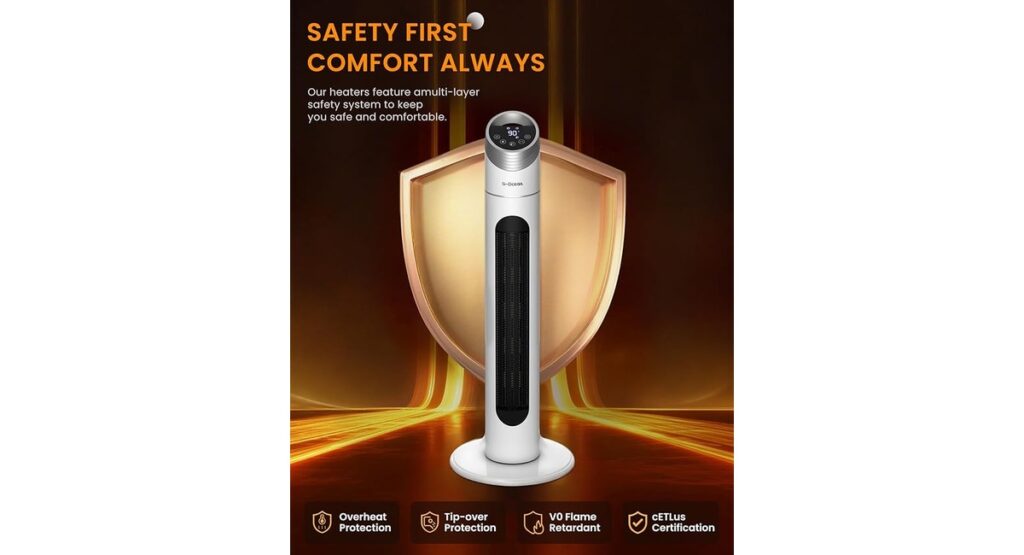
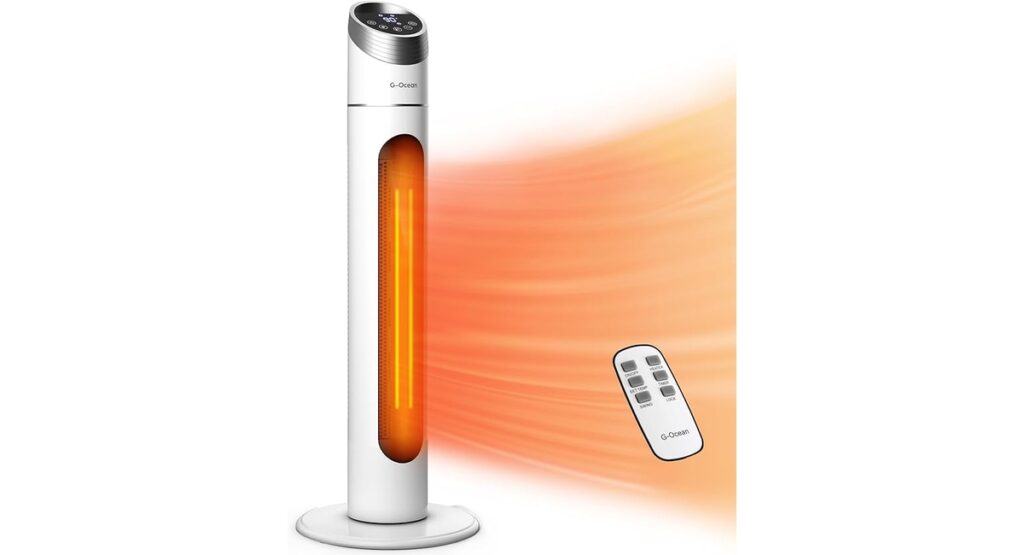

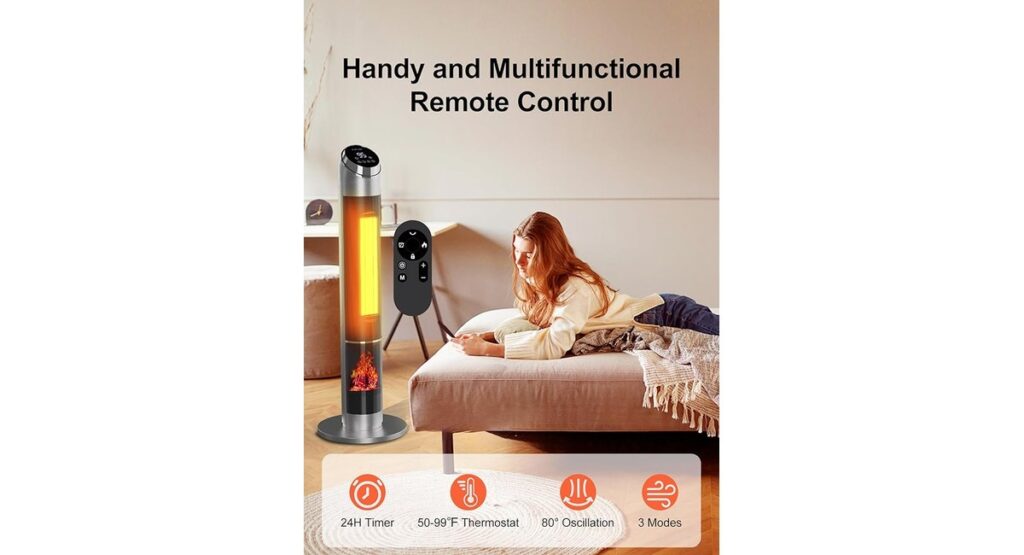
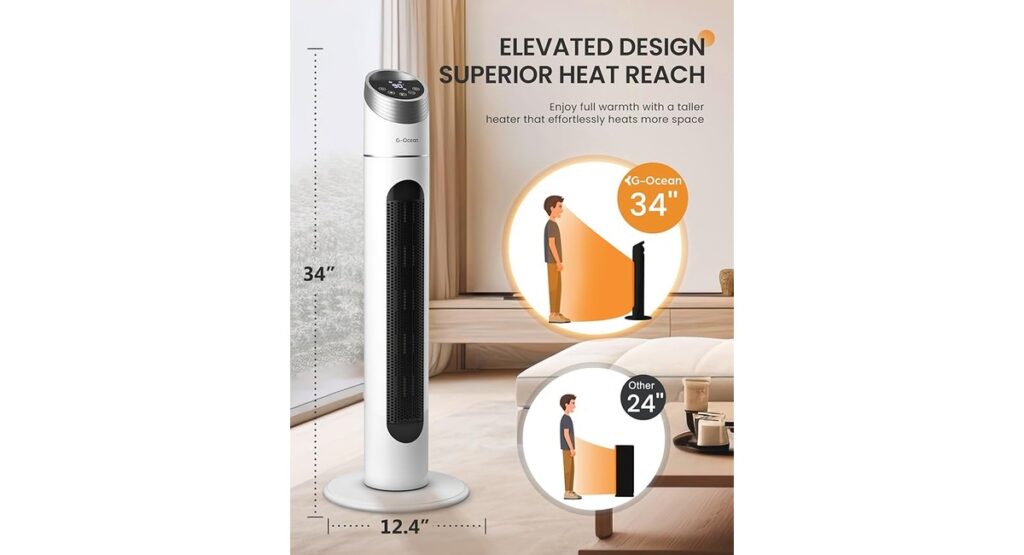
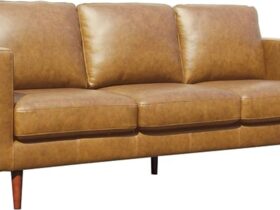



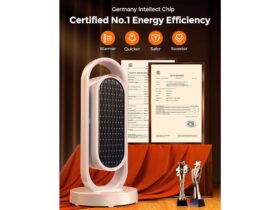
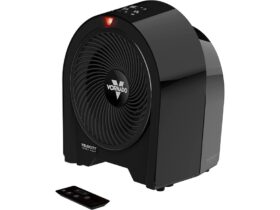
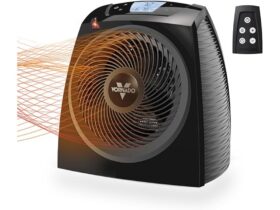
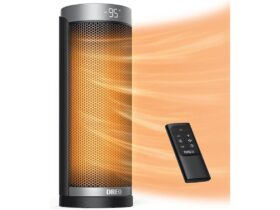
Leave a Reply